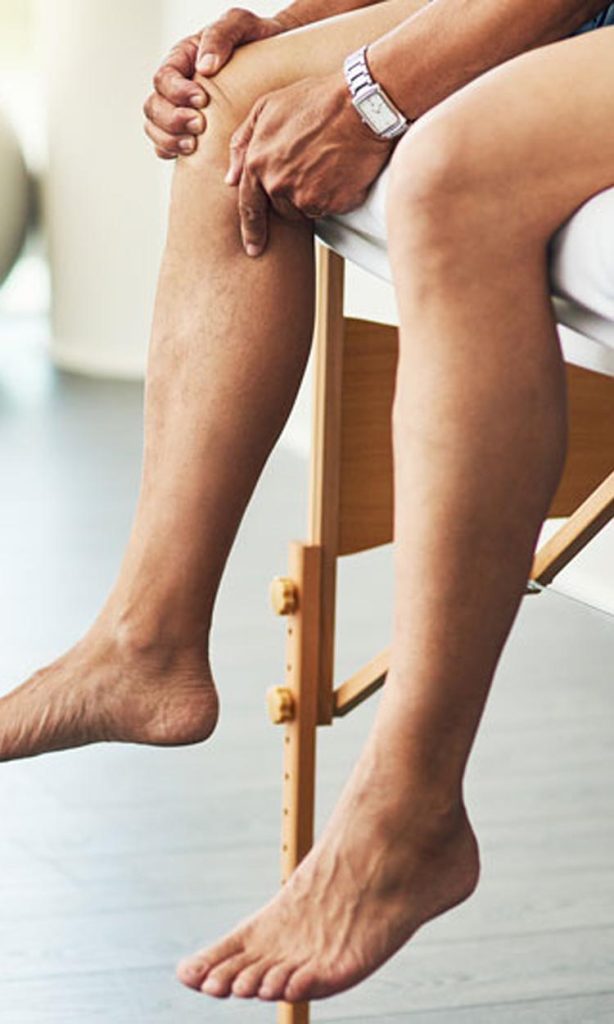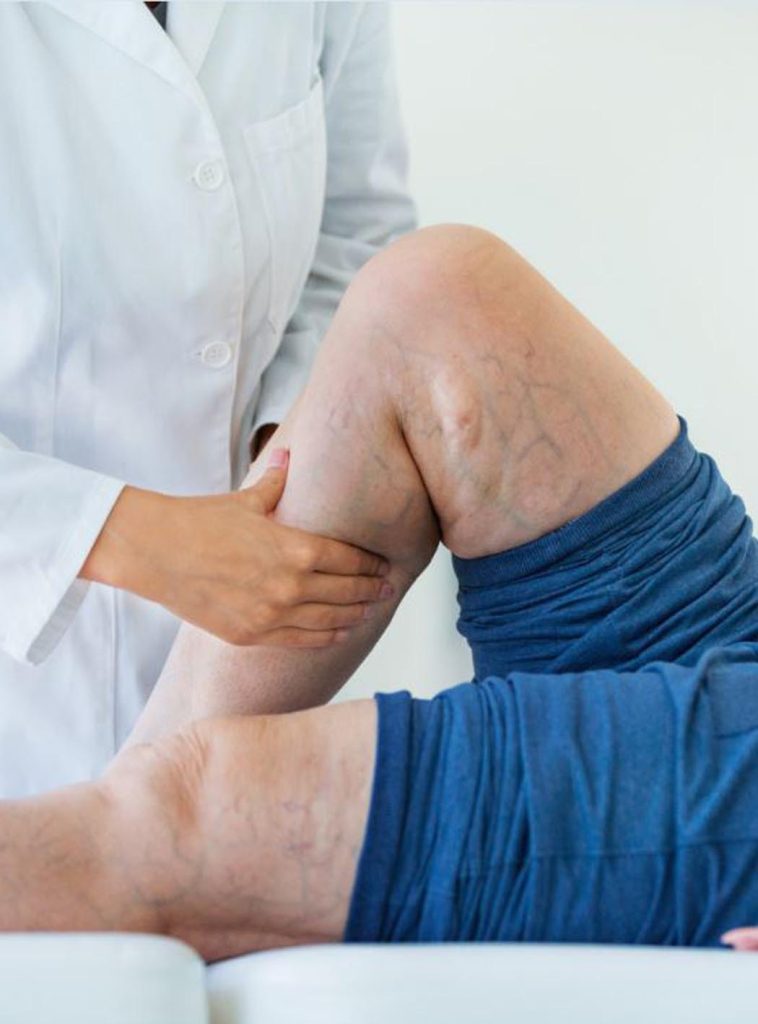The leg veins carry deoxygenated blood from the limbs back to the heart – against gravity. Venous leg pain may be caused by either superficial venous insufficiency due to a dysfunction in the superficial vein valves that are designed to prevent blood flowing backwards away from the heart or Deep Vein Disease which occurs in pelvis due to increased pressure on the pelvic veins (iliac veins) causing an obstructive phenomenon preventing or slowing blood flow out of the legs.
Leg pain, swelling, discolouration, ulcerations, cellulitis/infections and/or blood clots may develop due to pelvic/iliac vein compression. Blood clots can form in pelvic veins that are compressed. A blood clot can possibly break off and travel to the lungs causing a pulmonary embolism (PE). Symptoms include shortness of breath and elevated heart rate.
Deep vein thrombosis (DVT) is a blood clot in the deep venous system. Patients are more at risk for PE when diagnosed with DVT. Superficial vein thrombosis (SVT) is a blood clot in the superficial system or near the surface of the skin. This may cause redness and pain in the limb but is typically not treated as aggressively since the risk of PE is lower than DVT.

